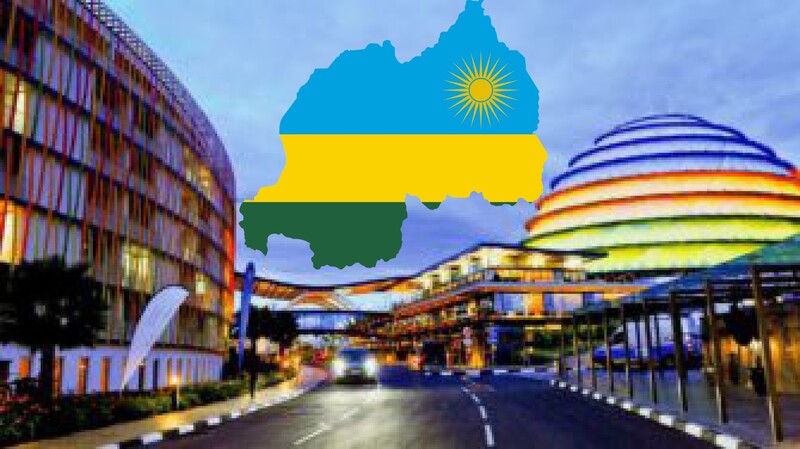 Rwanda's Transformation from the ashes to an Innovation leader in Africa. Photo Credits: Pixabay
Rwanda's Transformation from the ashes to an Innovation leader in Africa. Photo Credits: Pixabay
Rwanda's Rise From The Ashes: Leading Africa's Innovation And Tech Wave
Africa
Innovation
In the heart of East Africa, Rwanda is rapidly emerging as a hub of technological advancement and business innovation. While the country is often remembered for its tragic past—the 1994 genocide, where an estimated 800,000 people lost their lives in just 100 days—it has demonstrated remarkable resilience. This dark chapter has not hindered Rwanda’s ambition to position itself as a leader in Africa across multiple sectors.
Rising from the Ashes: Rwanda’s Transformation
Despite its painful history, Rwanda has risen from devastation to become a leader in driving growth, improving governance, and fostering entrepreneurship. Traditionally, African nations such as Nigeria, Kenya, and South Africa have dominated the continent’s tech landscape, owing to their youthful, tech-savvy populations. However, Rwanda is setting a new benchmark with ambitious government policies, a thriving startup ecosystem, and world-class infrastructure.
Digital Transformation: Rwanda’s Vision 2050 Strategy
A key advantage for Rwanda is its government’s strong commitment to digital transformation. Through its Vision 2050 strategy, Rwanda aims to evolve into a knowledge-based economy by prioritizing investments in:
Rising from the Ashes: Rwanda’s Transformation
Despite its painful history, Rwanda has risen from devastation to become a leader in driving growth, improving governance, and fostering entrepreneurship. Traditionally, African nations such as Nigeria, Kenya, and South Africa have dominated the continent’s tech landscape, owing to their youthful, tech-savvy populations. However, Rwanda is setting a new benchmark with ambitious government policies, a thriving startup ecosystem, and world-class infrastructure.
Digital Transformation: Rwanda’s Vision 2050 Strategy
A key advantage for Rwanda is its government’s strong commitment to digital transformation. Through its Vision 2050 strategy, Rwanda aims to evolve into a knowledge-based economy by prioritizing investments in:
- ICT infrastructure
- Digital literacy
- E-governance
Initiatives like Smart Rwanda, which seeks to emulate Singapore’s technological success, and partnerships with companies such as Zipline—a California-based robotics company providing medical drone deliveries—illustrate Rwanda’s focus on integrating technology into public services.
Comparing Rwanda’s Tech Approach to Other Nations
While nations like Nigeria and Kenya have strong private-sector-driven innovation, challenges in infrastructure and governance remain a barrier. South Africa, although advanced in fintech and AI, has been slower in government-led tech adoption compared to Rwanda. Rwanda’s proactive, government-driven approach stands out as a model for African innovation.
Kigali Innovation City: A Hub for Entrepreneurship
One of Rwanda’s flagship initiatives is Kigali Innovation City, modeled after Silicon Valley. This hub hosts:
- Incubators
- Tech firms
- Research institutions
It aims to foster entrepreneurship and innovation. The government has also created a business-friendly environment by offering attractive tax incentives, such as:
- A 7-year tax holiday for industries in manufacturing, health, energy, and tourism.
- A 5-year tax holiday for microfinance institutions and businesses operating within innovation parks.
- A 0% Corporate Income Tax for international companies with regional offices in Rwanda or philanthropic organizations.
These incentives make Rwanda an appealing location for startups and international businesses.
Competing with Africa’s Giants
Kenya’s Silicon Savannah remains a strong contender, home to giants like M-Pesa and Andela. Nigeria excels in fintech innovation, with companies like Flutterwave achieving international recognition. However, Rwanda’s advantage lies in its ease of doing business, ranked among the best in Africa by the World Bank. This makes Rwanda particularly attractive to startups and investors.
Digital Financial Inclusion: Rwanda’s Edge
Rwanda is quickly digitizing its financial sector, with impressive mobile money penetration. The MoMo Pay system, powered by MTN Rwanda, has facilitated widespread cashless transactions, supporting SMEs and boosting e-commerce growth.
While Nigeria and South Africa boast mature fintech ecosystems with robust banking and international investments, Rwanda’s government-backed model of digital financial inclusion could inspire other African nations to expand financial access in rural areas.
Investing in Emerging Technologies
Rwanda isn’t stopping at existing technologies—it’s actively investing in:
- Artificial Intelligence (AI): Accelerating adoption through fast-track policies.
- Blockchain: Utilizing blockchain for land registry and healthcare data management.
- Robotics: Exploring robotics for public services and innovation.
- Although South Africa and Nigeria lead in AI research, Rwanda’s quick policy implementation enables faster adoption of cutting-edge technologies, setting an example for other nations.
Lessons for Other African Nations
Rwanda’s success provides valuable insights for other countries:
- Proactive Government Support: Demonstrates how policies and investment in digital infrastructure can drive growth.
- Ease of Doing Business: Highlights the importance of transparent regulations and tax incentives in attracting investors.
- Leveraging Tech for Public Services: Shows how drones, e-governance, and mobile payments can transform everyday life.
Punching Above Its Weight
Despite its small size, Rwanda is proving to be a major player in business innovation and technology. By combining government-backed policies with a thriving private sector, Rwanda is solidifying its position as a leading tech hub in Africa. For other nations, Rwanda’s journey offers a blueprint for building a digitally driven, innovation-powered future.
Senior Editor & Author: Kenneth Njoroge
Financial Expert/Bsc. Commerce/CPA
